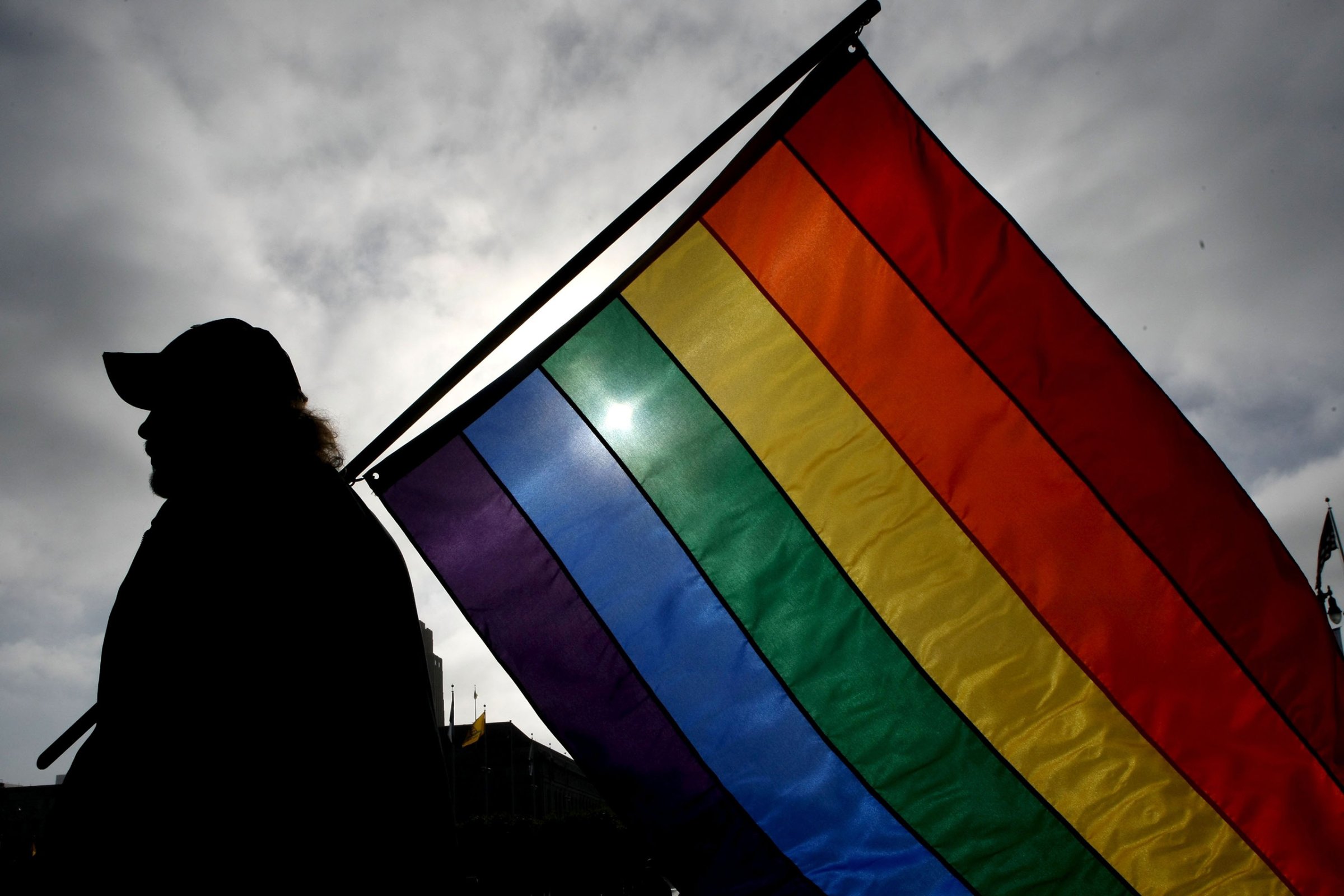
By all measures, 2015 will be remembered as a banner year for LGBT rights in the U.S. The Supreme Court gave gays and lesbians the right to wed. Popular culture and public opinion continued to embrace transgender identities and same-sex relationships. Corporate advocacy beat back state religious-freedom laws that would have provided a defense for discrimination. And there are more than 450 openly gay elected officials currently serving across the country.
But backers don’t expect the good news to continue, at least in the short term. Donors, activists and LGBT elected officials who gathered at the end of the year in Las Vegas to take stock of the movement were surprisingly grim on the prospects for 2016. “We don’t have time to sit around and pat ourselves on our backs,” said Aisha Moodie-Mills, the president and CEO of the Gay and Lesbian Victory Institute. “As we’re doing that, our opposition is running vile, hateful, nasty campaigns and getting rid of basic human-rights protections.”
There are many good reasons for their pessimism, and none of them are simple. Washington politics remains deadlocked, with Republicans unwilling to back advocates’ next big goal: a law that would make it illegal to fire, evict or expel LGBT individuals because of who they are. Odds aren’t much better in cities or states, either. Local conservatives, meanwhile, are preparing counterassaults to mirror the one they led in November, when voters in Houston stripped legal protections from LGBT citizens. Their focus? A campaign featuring the idea of predatory men loitering in women’s bathrooms. To top it off, there are emerging divisions among LGBT leaders on how best to maintain the momentum and who should lead the next stage of the effort.
Most agree that the fight will have to extend beyond Washington and state politics in the short term. Under current laws, many Americans can still be fired from their jobs, evicted from their homes or denied credit because of their sexual identity. But efforts by Oregon Senator Jeff Merkley and his allies to create new federal protections have not found a single Republican supporter in a Congress where the GOP calls the shots. “This Congress right now can’t keep their lights on, let alone pass the Equality Act,” says Chad Griffin, the head of the nation’s largest LGBT-rights group, the Human Rights Campaign. Instead, Griffin is laying the groundwork for after the 2016 election, assuming a Democratic President wins.
The key to making inroads with the GOP, activists believe, will be attracting new corporate support, like the advocacy from businesses and community groups that helped sink plans in Indiana and Georgia to make religion a legal justification for discrimination. But some now worry that the corporate backing could ebb in the face of renewed efforts to create religious carve-outs. Georgia conservatives are aiming to try for new legislation again in 2016, and the corporate objections have yet to publicly materialize again, although business leaders have unveiled studies that suggest the legislation could have an economic impact as high as $2 billion each year. Such financial arguments, which were tried in Houston, may not be enough to override deeply held religious beliefs. “There are limits to [how far] you can move the needle before religion steps in,” says Alex Wan, an openly gay member of the Atlanta city council.
Identity politics is also starting to cause friction within the gay-rights movement itself. Activists have begun objecting to the fact that the movement is still largely led by white men of means and has not focused enough on transgender issues and financially insecure populations. Groups are also struggling with a funding shortfall, especially from low- and mid-dollar donors. “Marriage blocked out the sun because that was the thing that people who were otherwise financially secure wanted,” said Nadine Smith, co-founder and CEO of Equality Florida. “The funding has dried up for what remains on the agenda.”
But not completely. Even after the Supreme Court’s ruling, the Human Rights Campaign still sold out its annual black-tie dinner in Washington. Software entrepreneur Tim Gill and his husband Scott Miller plan to spend $130 million over the next five years on advocacy–on top of the $327 million they’ve already given. “We can either be ideological purists or we can be pragmatic,” said Miller.
On the top of the list: continuing to win hearts and minds in a country where 28% still think consenting adult same-sex relationships should be illegal. “If merely passing a law meant that everyone would behave a certain way, you wouldn’t need police, you wouldn’t need judges,” said Victoria Kolakowski, the first openly transgender person to serve as a trial judge in the country.
On the same night that Houston voters rescinded protections for LGBT citizens, a lesbian mayor, Jackie Biskupski, was elected in Salt Lake City, home of the Church of Jesus Christ of Latter-day Saints. “Houston was a reminder of how far we have to go. And Jackie’s election is a reminder of how far we’ve come. And both of those realities can exist at the same time,” said Kate Kendell, executive director of the National Center for Lesbian Rights. Advocates expect the mixed signals to continue for a while.
More Must-Reads from TIME
- Inside Elon Musk’s War on Washington
- Meet the 2025 Women of the Year
- The Harsh Truth About Disability Inclusion
- Why Do More Young Adults Have Cancer?
- Colman Domingo Leads With Radical Love
- How to Get Better at Doing Things Alone
- Cecily Strong on Goober the Clown
- Column: The Rise of America’s Broligarchy
Write to Philip Elliott / Las Vegas at philip.elliott@time.com